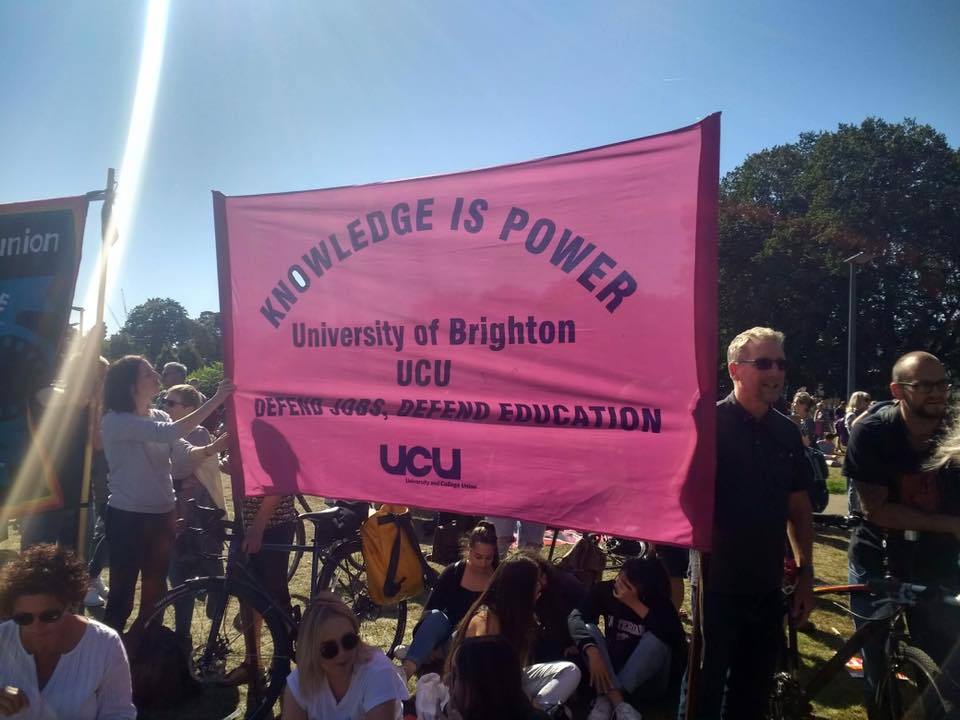The University of Brighton looks likely to suffer more strikes as two unions step up their fight over pay and conditions.
The latest strike by members of the UCU (University and College Union) started on Monday (28 March) and continue until tomorrow (Friday 1 April).
Meanwhile, Unison staff are due to walk out tomorrow and on Monday (4 April).
Tomorrow at 10.30pm, the UCU, Unison, other trade unions and students are expected join a “solidarity rally” in Grand Parade, Brighton.
And the UCU is balloting members again to try to secure a mandate for further strikes as part of its “four fights” dispute.
The four fights are fair pay, job security, manageable workloads and equality with steps to close gender, ethnic and disability pay gaps.
Mark Abel, who chairs the the Brighton UCU co-ordinating committee, outlined them as: “Pay being the essential issue.
“But we want employers to address other issues – pay gaps, such as gender and race, the number of people on casual or insecure contracts and workloads which are going through the roof.”
While many will worry that students’ educations are likely to suffer during these strikes, Mr Abel said: “It’s always a consideration. Recently bin workers went on strike you see the effects of it.
“We don’t want to disrupt students’ education. We feel as though we don’t have a choice.”
In the long run, Mr Abel felt that students’ education and wellbeing would benefit and that the UCU and students were largely on the same side.
He added: “We don’t feel on the other side of the fence from students. If lecturers are overworked and mistreated, why would they want to give their best to students.
“Our vision is students and staff in a collective endeavour of learning instead of students as customers and staff as service providers.”
The latest dispute follows a pay increase offered by the Universities and Colleges Employers Association (UCEA) last July on behalf of Brighton and other universities.
UCEA said that its offer represented “an increase in the pay bill of 1.6 per cent”, with pay rises ranging between 1.54 per cent and 3.6 per cent.
The employers’ body said: “The financial uncertainty initially created by the pandemic has now translated into clear pressures for many higher education institutions.
“The most recent analysis from the Office for Students (OfS) shows that net operating cashflow halved between 2019-20 and 2020-21.
“The OfS analysis also suggests that there will be continuing reduced income from accommodation and commercial activities that rely on open buildings and facilities.
“Within this context, employers have had to show careful financial management in order to minimise the impact on jobs.”
UCEA added: “Recent funding announcements which have frozen allocations in cash terms will continue to create challenges for employers.”









